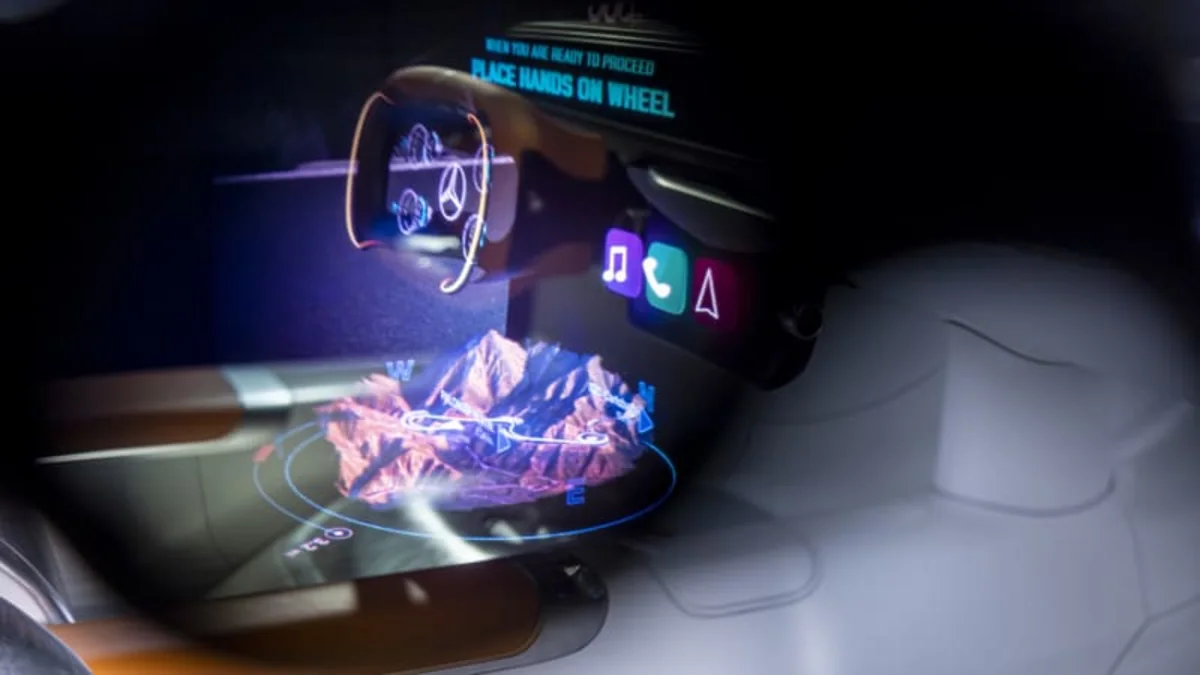Mercedes-Benz Vision One-Eleven: An electric hypercar under high-tech wraps?

Somewhere, a group of people got together and decided that June is Hint-At-Your-Future-Hypercar season. Porsche clearly got the memo, and now Mercedes-Benz is throwing its hat in the ring with its new Vision One-Eleven concept – ahem, “sports car study.” This thinly-disguised nod to the company’s next four-wheeled world-challenger borrows heavily from the experimental C 111 vehicles from a half-century (!) ago, blending vintage style with a next-generation electric powertrain and some razzle-dazzle tech that might make the One-Eleven cooler, but certainly won’t make it any quicker.
Even if 50 is the new 30, technology has come a long way in the past five decades. Where the C 111 shown alongside it here demonstrated our emerging understanding of vehicular aerodynamics, the One Eleven is a digitally engineered masterwork of atmospheric diversion. Pretty? No — at least not in the same way the old C 111 is — but it’s still quite impressive. From some angles, it looks spectacular. From others, it’s downright homely, but in that way that tells you function won out over form. One thing is for certain: it looks best with those flush-mount gullwing doors deployed. Still, I think Porsche did it better.
While the outside looks purpose-built, things go off the rails a bit inside, where you’ll find an aesthetic that is equal parts vintage race car and Apple Vision Pro. It’s really all a matter of which part you’re looking at. Face away from the dash and the seats, belts, upholstery and matching weekender bag all scream “disco;” turn around and you’ll need VR goggles to see anything at all. That’s not even an attempt at humor. See for yourself:

Yep, that’s a headset. Not a VR headset, but an AR headset. Think Google Glass, but for the car. With this setup, Benz says, the entire car becomes the user interface. Unfortunately, this doesn’t mean the cabin is free of “screens” or touch interfaces; both feature prominently on the dash. This is of virtually zero usefulness when it comes to setting Nürburgring times, so we don’t expect this sort of thing to be made a priority for whatever production vehicle may come of it, but it suggests that Mercedes-Benz has ideas for new cabin designs in a potential future where traditional control surfaces aren’t necessary. Can we take it inside to help us find the missing spare key too?
I keep bringing up hypercar potential, so let’s address the elephant in the room. Mercedes-Benz is playing this one close to the vest, but chose to tease us with some background on the components it will utilize. The battery design and chemistry will be new, Mercedes says, and the pack will be paired with “an exceptionally powerful and advanced” axial-flux electric motor. They’re smaller, lighter and narrower than commonplace radial-flux motors, making them ideal for high-performance electric applications. As for just how much performance we should expect from whatever roadgoing car this becomes, Mercedes-Benz won’t say just yet. Its 1,049-horsepower predecessor managed 62 miles per hour in 2.9 seconds and a top speed of 219 mph when it launched a year ago. How will we top that?
Related Video



